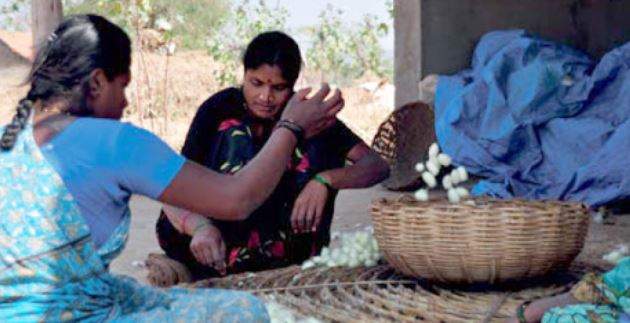Jammu and Kashmir has a century old association with the sericulture and silk production. It is one of the labour intensive and commercially attractive industries to be in. Sericulture being an agro based industry has provided employment to many rural people especially woman in Udhampur district are associated with this occupation.
Farmers have been practicing sericulture in Udhampur district of J&K from many years and have generated enough revenue for them. More than 5000 families are associated in Udhampur with this occupation.
J&K is gifted with the climatic conditions which are good for bivoltine cocoon production and demand for production of quality silk is high in India.
As per official figures, Sericulture department distributed 5001.5 ounces of silkworm seed among 5130 farmers after Chawki rearing in year 2021. Recording a bumper harvest, this year the district produced 155151 KG cocoon and the farmers earned an amount of Rs. 4.49 crore.
Mulberry silkworm is a mono-phagus as it feeds on only mulberry leaves. Mulberry is a hardy plant which required wide range of climatic conditions and for rearing of silkworms, the propagation and plantation of mulberry trees is needed.
There are nearly 15 mulberry nurseries in Udhampur and the department is provides improved varieties of mulberry plants to the farmers free of cost. In the year 2020-21, 60300 Mulberry trees were distributed among the farmers and this year it targets to provide 76300 plants to the farmers free of cost.
Cocoons are sold through an Open Auction Market system, with the highest bidder have the right to purchase the lot from the Cocoon Growers. This year nearly 4000 rearers sold their cocoons in Cocoon Auction Market Udhampur. Progressive farmers get a large amount of money by selling their crop. Despite a fact it is a short term crop the top cocoon growers earn approximately Rs. 0.5 lakh annually from sericulture department.
